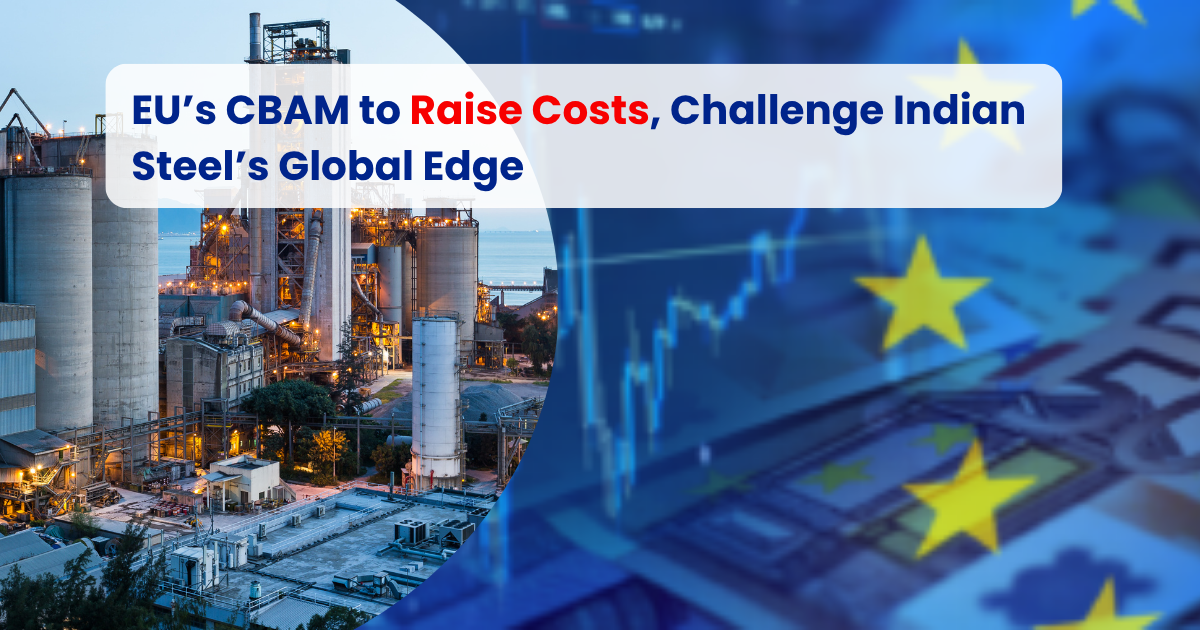India–US Trade Tensions Rise Over Steel and Auto Tariffs NMDC Limited reports a 38% drop in Q4 FY24 consolidated net profit RINL to Raise $23 Million Through Land Sales Amid Crisis

India’s steel industry is bracing for higher costs and reduced global competitiveness as the European Union rolls out its Carbon Border Adjustment Mechanism (CBAM), according to a report by Grant Thornton.
Set to take full effect in 2026, CBAM will impose a carbon tax on high-emission imports like steel, aimed at promoting cleaner industrial practices. For Indian steel exporters, this could translate into an added cost of $60 to $165 per tonne, depending on carbon intensity and export volumes, potentially affecting up to 40% of their EU-bound shipments.
The report warns that these higher compliance costs may shrink profit margins and weaken India’s position in the global steel trade. The CBAM is expected to significantly disrupt current supply chains, especially for carbon-intensive producers who rely heavily on coal-based blast furnaces.
To counter this, the report urges Indian steelmakers to accelerate their green transition. Shifting to electric arc furnace (EAF) technology, increasing renewable energy use, and investing in low-carbon innovations will be crucial to maintain competitiveness in decarbonizing markets like the EU.
With the global push toward net-zero, CBAM serves as both a challenge and a catalyst—prompting Indian steel producers to align with global sustainability standards or risk losing critical market access.
Also Read : Ministry of Coal ensuring uninterrupted coal supply to meet high power demand Manjhi Urges Revival of Wazirganj Steel Plant to Boost Bihar’s Industrial Growth